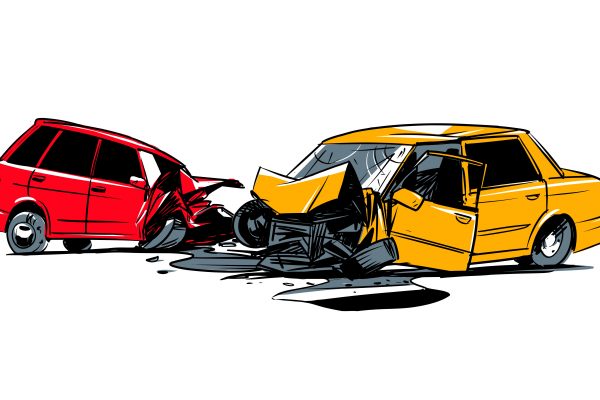
What Drivers Must Do After a Crash to Avoid Hit and Run Charges
You’re driving along and suddenly you feel an impact. It’s clear you’ve just been involved in a motor vehicle crash and the results are devastating. You might not have insurance, so you fear the serious civil actions you might face. Maybe you or the other driver were seriously injured and you’re too overwhelmed to give aid. The worst possible scenario is that the other driver has died or sustained fatal injuries because of the crash, and you fear the repercussions.
All these fears are valid and can really affect a rational mind. Not to mention, a car crash is an incredibly paralyzing event. The force of the crash could have even caused you to hit your head or go into survival mode. You might not be thinking clearly and make the choice to leave as an instinct. No matter the circumstances of the hit and run, the penalties for the crime have serious life-altering effects.
What Are the Driver’s Responsibilities After an Accident?
You might be unaware, but Texas law states drivers have a certain procedure they must follow if they’ve been involved in a crash. The purpose of these laws is to ensure the safety of both parties. According to Texas Penal Code Section 550.021 and 550.023, you must do the following after you’ve been in a car accident.
- Stop the vehicle at the scene of the accident or as close as possible;
- If unable to stop at the scene, immediately return to the scene of the accident;
- Determine whether the other parties involved require aid or not;
- Remain at the scene of the accident until law enforcement arrives.
In addition, you are obligated to give specific information to the other driver. This is so both parties can exchange insurance information which includes:
- Name, address, registration number of the vehicle, and the name of the vehicle’s liability insurer to the other injured party or occupant of the other vehicle;
- Your driver’s license if requested; and
- Provide reasonable aid to any injured persons, which includes any kind of transportation to the hospital for treatment.
What Happens If You Fail to Provide Aid After a Car Crash?
You must uphold your duty to stop and render aid if you were involved in an automobile accident. Refusal to do so will result in a failure to stop and render aid charge, otherwise known as a hit and run. You may face the statutory penalties, which includes expensive fines in the thousands and even time spent in jail.
The penalties for the crime depend on the circumstances. If the other driver was injured, then you may face the following consequences:
- Possible fine of up to $5,000;
- Confinement in county jail for not more than one year; or
- Incarceration in prison for not more than five years.
However, if the other driver’s condition is determined to be a serious bodily injury, then you may face a third-degree felony charge. The penalties for a third-degree felony include:
- Maximum prison sentence of up to 10 years; and
- Possible fine of up to $10,000.
Hit and runs involving the death of another person is a second-degree felony, which can result in the following penalties:
- Maximum prison sentence of up to 20 years; and
- Possible fine of up to $10,000.
Hit and Run Penalties for Accidents Not Involving Injury
Hit and runs aren’t always cases of people failing to stop and render aid. You can also be charged with a hit and run for fleeing the scene of an accident, even if there’s no injury. Under Texas law, it’s illegal to leave the scene of an accident without exchanging relevant information if there’s property damage.
Refusing to provide insurance information is a class C misdemeanor, which can lead to a fine of up to $500. If the damage amounts at $200 or more, then you could face a class B misdemeanor, which can result in the following penalties:
- Up to 180 days in county jail; and
- A fine of up to $2,000
Striking an unattended vehicle and failing to locate the owner or leave a note with information is also a crime. If the damage is less than $200, then you will be charged with a class C misdemeanor. However, if the damage accumulates at $200 or more, then you will face a class B misdemeanor.
This article was last updated on September 30, 2019.








